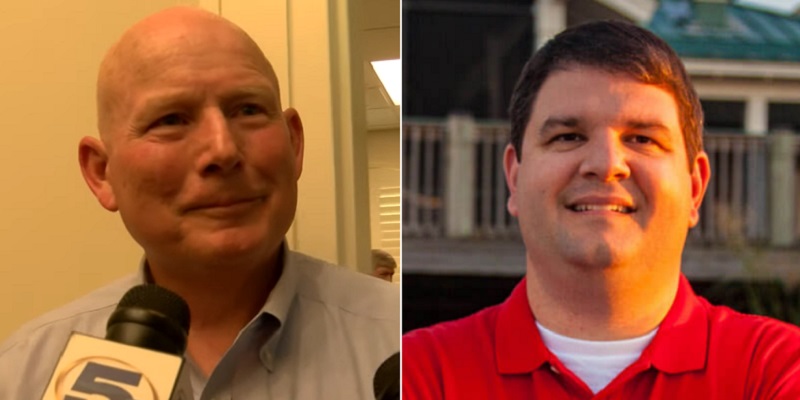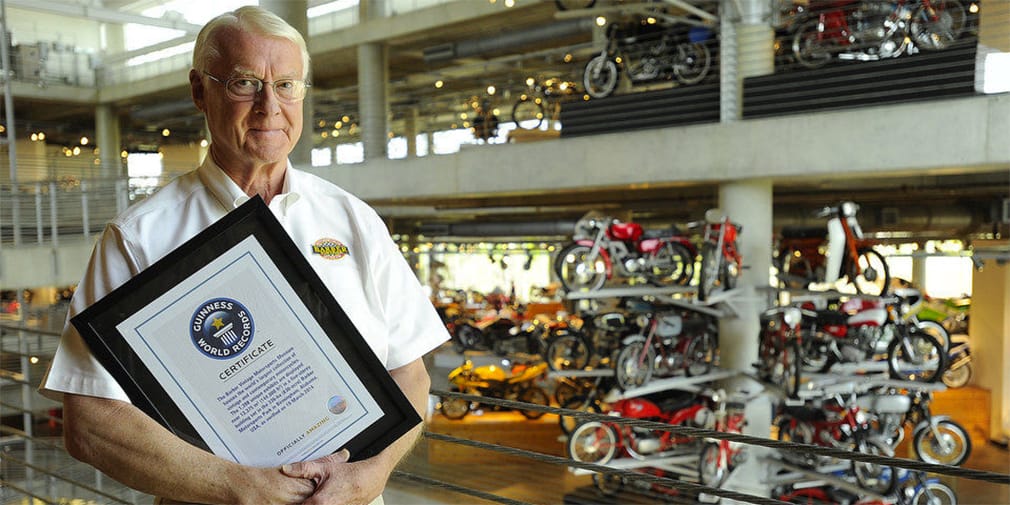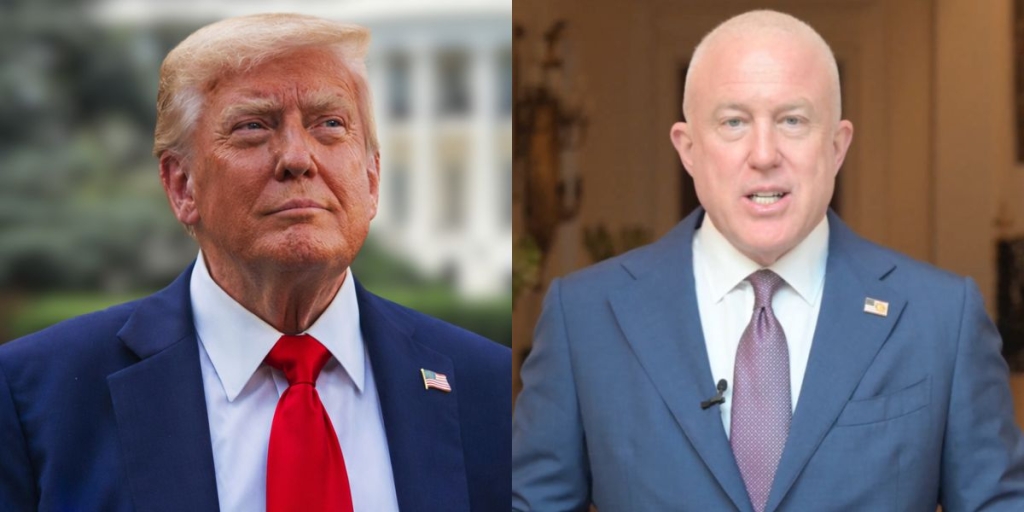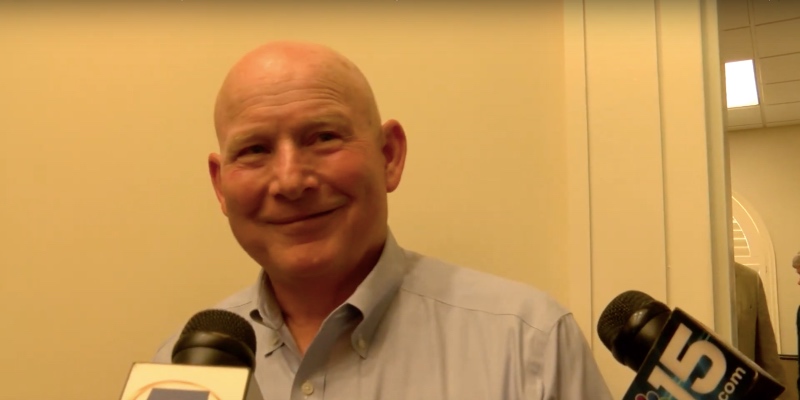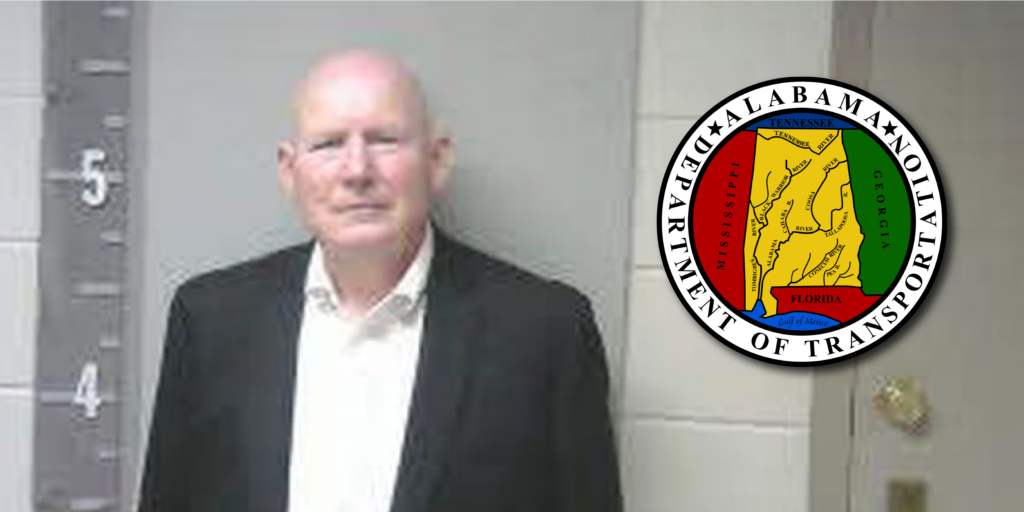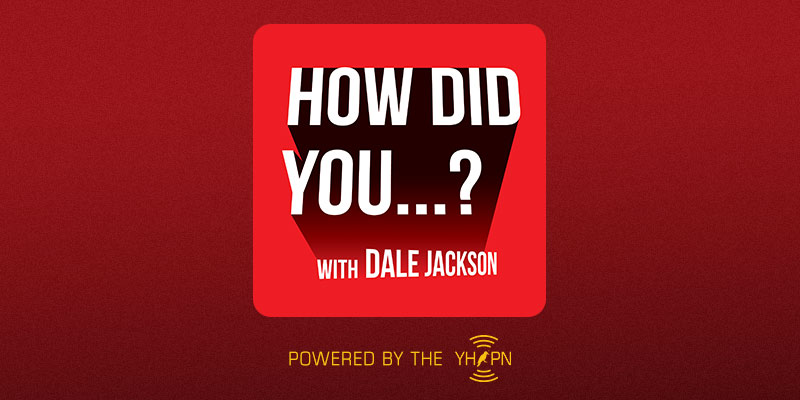Wednesday at an informational meeting for members of the Mobile County legislative delegation, things got a little heated between Alabama Department of Transportation Director John Cooper and State Rep. Matt Simpson (R-Daphne).
According to Mobile’s FOX 10 WALA’s Tyler Fingert, Cooper had previously planned not to speak at the meeting. That would have been keeping in line with what appears to be Cooper’s low-profile as the I-10 Mobile Bay Bridge brouhaha has transpired.
However, he broke that silence and spoke for a little more than 20 minutes about the hurdles he and his agency had faced in getting the project in line with what he said were requirements of the Federal Highway Administration and the issues with the Mobile County and Eastern Shore Metropolitan Planning Organizations (MPO) potentially removing the project on their long-term Transportation Improvement Plans (TIP).
At the tail end of his remarks, Cooper and Simpson engaged in a back-and-forth about the Mobile delegation’s role in opposing the project and a potential vote on it by both the Mobile and Baldwin County delegation with Cooper warning Simpson about the responsibility he was taking.
Cooper accused Simpson of opposing the project without asking questions first, referring to a letter the Mobile County delegation had sent to Gov. Kay Ivey. However, Simpson, who is a member of both the Mobile and Baldwin delegations, refuted Cooper’s claim by pointing to a meeting attended by Baldwin County legislators that was held in Spanish Fort earlier in the summer.
For that meeting, in particular, the Baldwin County delegation had prepared a list of questions for Cooper, which Cooper later acknowledged having addressed.
Exchange as follows:
COOPER: I want to run on. I’ve got a phone call I’ve got to leave for. But I didn’t intend to speak today. But I want you to leave, with these folks trying to be nice and deal with the professional things that they do without I having said to you – you need to understand if I don’t satisfy the Federal Highway Administration there will be nothing.
I need you to understand bluntly that I have not spent begging and cajoling to approve a document and paying these people to do the same just because I like doing it. It’s what was required to get to this point – to give you the option to object to funding the road. That option can only come to you if I can get to you the information you need to know what option you’re voting on.
And I can’t get it in the position you’ve put me in.
SIMPSON: I haven’t seen anything where we get a vote.
COOPER: I beg your pardon?
SIMPSON: The first time you’ve …
COOPER: Sir, you’ve never asked for a vote on anything, but —
SIMPSON: I’m asking for a vote –
(CROSSTALK)
COOPER: And I’m telling you, I’ll recommend to the governor she let you vote on it.
(CROSSTALK)
COOPER: I will. I’ll recommend to the governor that she let the two delegations vote on it and I’ll further recommend we don’t do it if there’s not a majority in each delegation.
SIMPSON: That sounds wonderful. That is a huge step today.
COOPER: I’m fine.
SIMPSON: Until this point, following the process of going through what we have done, we have no control. Under the law, currently you don’t have to ask us to ask for a vote. It goes to the toll authority.
COOPER: Sir, I’m trying to listen to you patiently.
SIMPSON: OK.
COOPER: All you’ve done that I’m aware of is condemn the project before you ever asked a single question about it.
SIMPSON: Where have you seen I’ve condemned the project?
COOPER: You signed a resolution opposing the project.
SIMPSON: We signed the resolution asking for a better answer.
COOPER: No, you signed the resolution opposing the project.
(CROSSTALK)
COOPER: You didn’t ask a single question. None of –
SIMPSON: When didn’t I ask questions?
COOPER: None of you asked a single question before you did that.
SIMPSON: Sir, have you talked … just because we didn’t have a question you, we didn’t ask questions?
COOPER: All I know is you didn’t ask me anything.
SIMPSON: OK, the Baldwin delegation sent up a letter with about 22 questions — we sent up to you. You came down to Spanish Fort and answered these questions because you wanted to have them in writing, correct?
COPPER: Correct.
SIMPSON: So please don’t say we didn’t ask questions.
COOPER: The Mobile delegation as a delegation asked no questions.
SIMPSON: I’m in both, so don’t say I didn’t ask questions.
COOPER: Sir, I’m proud you are and I don’t wish to argue with you. But I’ll make that recommendation to the governor. But you as a body need to understand you can have that control. With that control comes great responsibility.
SIMPSON: Absolutely.
COOPER: And we’ll present alternatives to you but you need to help us get in a position we can do that.
SIMPSON: There is nothing in the law, and I’m sorry – I go back to the law. We can take your word all day long that you’re going to give us the opportunity to vote on it. But there is nothing in the law that requires this.
COOPER: Sir, I told you that I would recommend to the governor that she put that in writing.
SIMPSON: That means nothing.
COOPER: Well, then I’m going to have real difficulty pleasing you if my word means nothing and if the governor puts it in writing that means nothing. I don’t know what else I can do.
SIMPSON: This is the first time you have approached us. This is the very first time that has been discussed. So please don’t put it back to I haven’t asked question, because I have asked questions —
COOPER: We don’t need to go over whether you did or didn’t. I apologize for saying that.
(CROSSTALK)
COOPER: Is that a path forward?
SIMPSON: We’re trying to find a middle ground.
COOPER: I’m saying, is that a path forward, if the governor would do that? And I don’t know if she will.
SIMPSON: If the governor would allow us to vote, absolutely.
COOPER: I’ll recommend that to her.
SIMPSON: You can put that recommendation on a piece of paper and she can say no.
COOPER: If she does that, will you ask the MPO to put it back in the TIP?
SIMPSON: If you get it in writing first.
COOPER: I said if she does that —
SIMPSON: If you put it in writing that says I will put it to the delegation and let them answer the question, then I will recommend that.
COOPER: — will you ask the MPO to put it back in the TIP?
SIMPSON: If you get it in writing that says —
COOPER: I’ll make that recommendation.
SIMPSON: I think that’s it.
COOPER: You’ve caught it. I hope you’re ready to skin it.
Following the event, Simpson explained to FOX 10 why he saw his questioning of Cooper necessary.
“The purpose of this meeting was to ask questions, and I’m not going to apologize for asking tough questions,” Simpson said. “The project went from $850 million to $2.1 billion, and I think it’s fair to just ask questions, ‘how?’”
@Jeff_Poor is a graduate of Auburn University, the editor of Breitbart TV and host of “The Jeff Poor Show” from 2-5 p.m. on WVNN in Huntsville.




